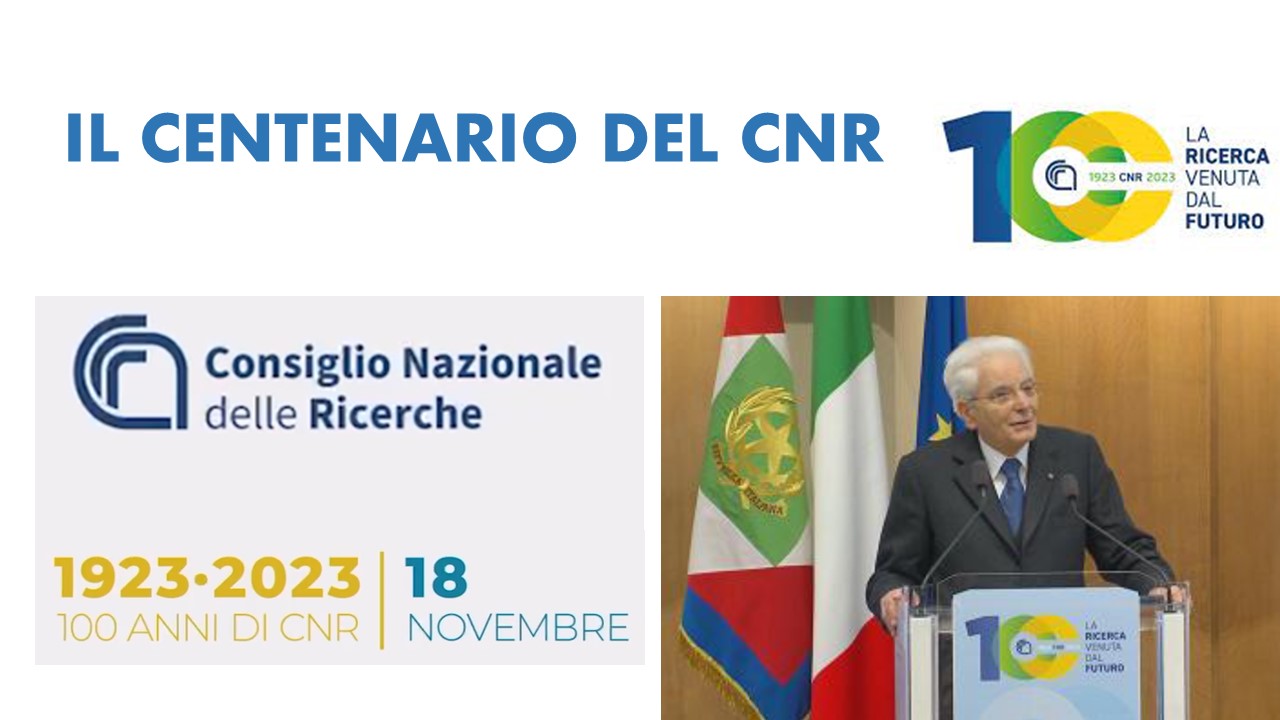It officially closed on November 18 Centenary of the founding of the National Research Council (CNR)It was founded on the same date in 1923.
The closing ceremony, which was attended by President Mattarella, was the culmination of a series of events, activities, exhibitions, seminars and conferences that witnessed the participation of the scientific community in cnr, An ecosystem of about 10 thousand people They are active throughout the national territory and in frontier research areas such as the Arctic and Antarctica.
CNR, the largest Italian research body, addresses the challenges of our time in multiple sectors: human and planetary health, environment and energy, sustainable food and agriculture, transportation and production systems, information and communications technologies, new materials, sensors and space. But also humanities and cultural heritage protection, social sciences, bioethics, quantum sciences and technologies, artificial intelligence, and enabling technologies.
The centenary of the founding of the largest Italian research organization was an opportunity to do just that A comprehensive reflection on the role of science in society Proposing a program of initiatives to reflect on the position of this important institution within the national and international cultural scene, and on its contribution to scientific and civil progress.
Research is a human activity that has thousands of dimensions: aesthetic, ethical and artistic Which, as the inscription that stands out in the Great Hall of the National Research Council “The Light of Knowledge I Seek and the Benefit” (a phrase attributed to Leonardo da Vinci) (a phrase attributed to Leonardo da Vinci) indicates, aims to know the world and use the world. Results for solving human problems Research is the beating heart of the cognitive process, and aims to open new horizons in understanding how our world works. As Luisa Torci has pointed out, research in the sectors of the physical and natural sciences and in the humanities and social sciences develops inextricably with the artistic dimension: together they allow Human, spiritual, social and economic development We need to face the unknown of the future.
Looking back on the history of the first 100 years of the National Research Council, Nobel laureate Giorgio Parisi said: “CNR has a history of extraordinary successBut despite these successes, the institution, like the entire research sector, is underfunded. The natural question arises, if we achieved all this with little research funding, what miracles would we be able to achieve with sufficient funding? Direct government funding covers salaries or little more, and almost all research is financed with funds obtained through Italian or European project financing, contracts concluded with public administrations and also with individuals. The absolute scarcity of funds allocated independently to scientific institutions prevents the Scientific Research Committee from being able to make strategic choices About the direction in which research will be developed.” With an effective example, the scientist said that the future of developed countries and therefore Italy depends on science and research. Not funding research adequately is like eating seeds instead of planting them.
The National Reconciliation Commission currently receives exceptional funds from the National Fund for Reconstruction and Development, but at the end of the plan in 2016, a “hole” will be created in the budget which will necessarily be filled with regular appropriations. Parisi proposed a solution: revising the stability pact with Separation of investments for scientific research Which would allow a decisive change in direction at the European level, to achieve the goals set in Lisbon in 2000, to achieve a knowledge-based economy in all countries.
At the end of the ceremony, he spoke the President Mattarella. In his unexpected speech at the program, the President referred to the slogan chosen for the centenary celebration, “Research Coming from the Future,” quoting a line from poet Rilke’s “The Future that Enters Us” to emphasize that the future is entering us through research. Thanking the National Research Council researchers for the valuable work they do for the good of the country, he strongly emphasized that research, with its network of cooperation, unites people and is therefore A powerful tool for peaceIt is especially valuable at this difficult historical moment of international tensions.
Related

“Infuriatingly humble social media buff. Twitter advocate. Writer. Internet nerd.”



